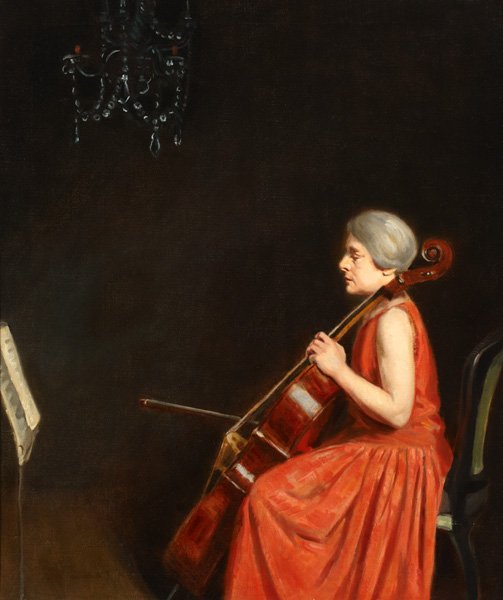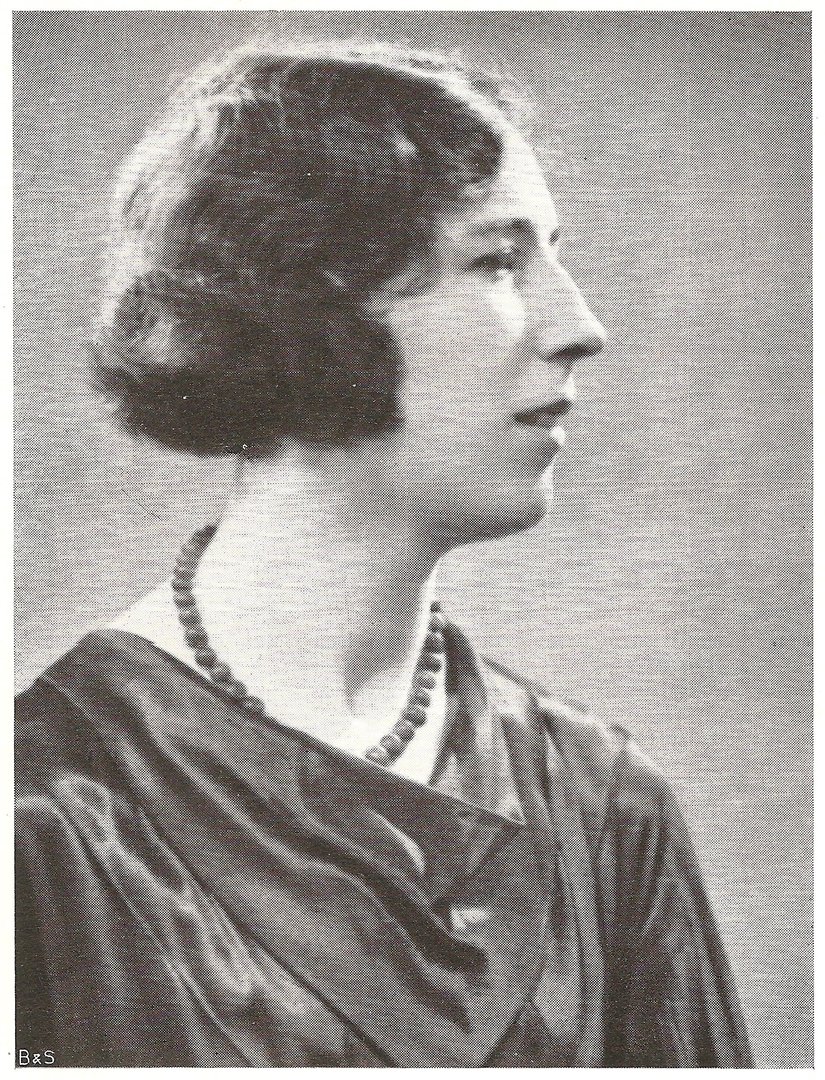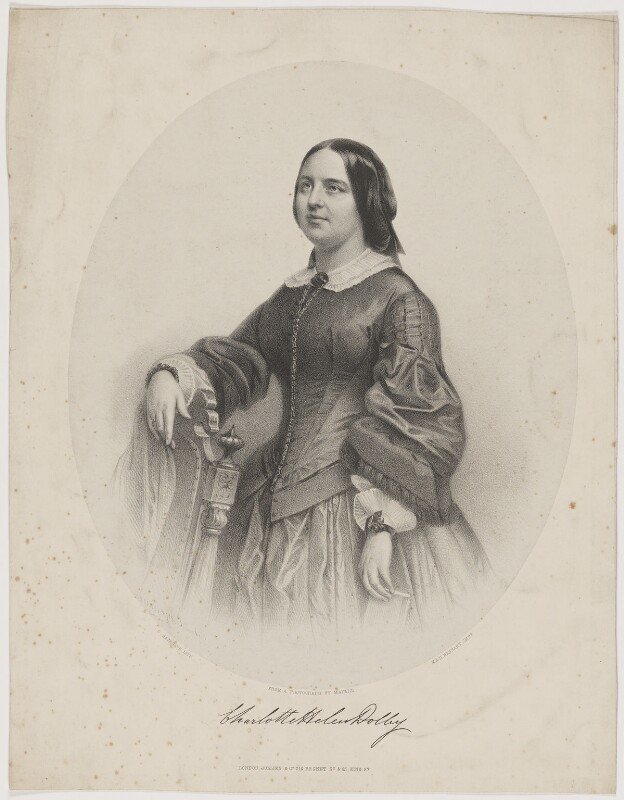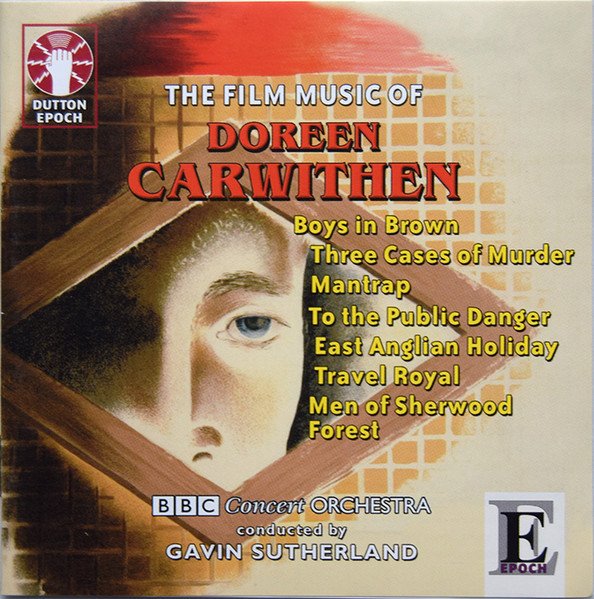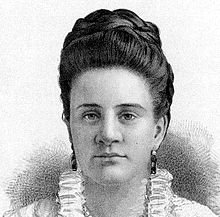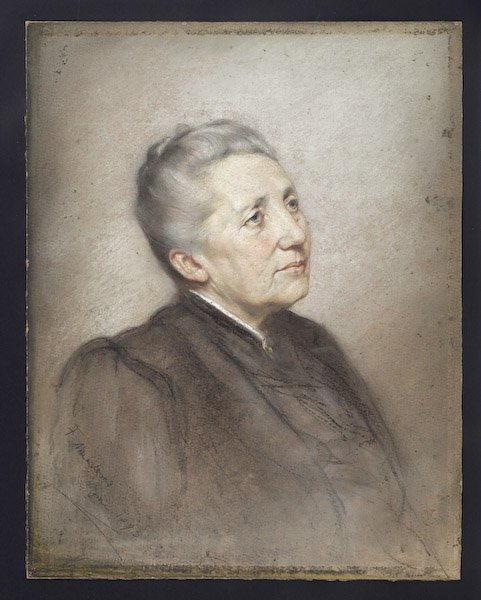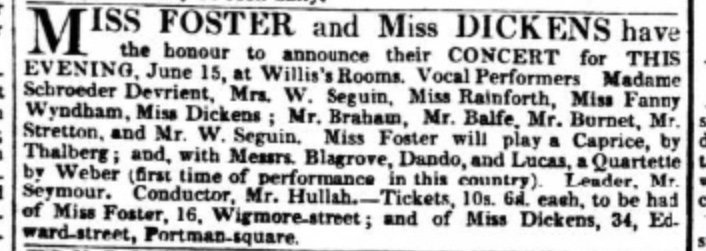To the University of Cambridge, in New England: Phillis Wheatley
“While an intrinsic ardor prompts to write,
The muses promise to assist my pen;
‘Twas not long since I left my native shore
The land of errors, and Egyptian gloom:
Father of mercy, ’twas thy gracious hand
Brought me in safety from those dark abodes.
Students, to you ’tis giv’n to scan the heights
Above, to traverse the ethereal space,
And mark the systems of revolving worlds.
Still more, ye sons of science ye receive
The blissful news by messengers from heav’n,
How Jesus’ blood for your redemption flows.
See him with hands out-stretcht upon the cross;
Immense compassion in his bosom glows;
He hears revilers, nor resents their scorn:
What matchless mercy in the Son of God!
When the whole human race by sin had fall’n,
He deign’d to die that they might rise again,
And share with him in the sublimest skies,
Life without death, and glory without end.
Improve your privileges while they stay,
Ye pupils, and each hour redeem, that bears
Or good or bad report of you to heav’n.
Let sin, that baneful evil to the soul,
By you be shun’d, nor once remit your guard;
Suppress the deadly serpent in its egg.
Ye blooming plants of human race divine,
An Ethiop tells you ’tis your greatest foe;
Its transient sweetness turns to endless pain,
And in immense perdition sinks the soul.”
Miracle Ice Cream: Adrienne Rich
“Miracle’s truck comes down the little avenue,
Scott Joplin ragtime strewn behind it like pearls,
and, yes, you can feel happy
with one piece of your heart.
Take what’s still given: in a room’s rich shadow
a woman’s breasts swinging lightly as she bends.
Early now the pearl of dusk dissolves.
Late, you sit weighing the evening news,
fast-food miracles, ghostly revolutions,
the rest of your heart.”
How many Flowers fail in Wood —: Emily Dickinson
“How many Flowers fail in Wood —
Or perish from the Hill —
Without the privilege to know
That they are Beautiful —
How many cast a nameless Pod
Upon the nearest Breeze —
Unconscious of the Scarlet Freight —
It bear to other eyes —”
Interview: Dorothy Parker
“The ladies men admire, I’ve heard,
Would shudder at a wicked word.
Their candle gives a single light;
They’d rather stay at home at night.
They do not keep awake till three,
Nor read erotic poetry.
They never sanction the impure,
Nor recognize an overture.
They shrink from powders and from paints ...
So far, I’ve had no complaints.”
The Fountain: Sara Teasdale
“All through the deep blue night
The fountain sang alone;
It sang to the drowsy heart
Of the satyr carved in stone.
The fountain sang and sang,
But the satyr never stirred—
Only the great white moon
In the empty heaven heard.
The fountain sang and sang
While on the marble rim
The milk-white peacocks slept,
And their dreams were strange and dim.
Bright dew was on the grass,
And on the ilex, dew,
The dreamy milk-white birds
Were all a-glisten, too.
The fountain sang and sang
The things one cannot tell;
The dreaming peacocks stirred
And the gleaming dew-drops fell.”
My Father: Jessie Rittenhouse
“My father was a tall man and yet the ripened rye
Would come above his shoulders, the spears shot up so high.
My father was a tall man and yet the tasseled corn
Would hide him when he cut the stalks upon a frosty morn.
The green things grew so lushly in the valley of my birth,
Where else could one witness the luxuriance of earth?
The plow would turn so rhythmically the loose, unfettered loam,
There was no need of effort to drive the coulter home.
My father walked behind his team before the sun was high,
Fine as a figure on a frieze cut sharp against the sky.
And when he swung the cradle in the yellow of the grain,
He could command all eyes around, or when he drove the wain.
I wonder if his acres now that lie so far away
Are waiting for his footprint at the coming of the day.
I wonder if the brown old barn that still is standing long
And ghostly cattle in the stalls are waiting for his song.”
Before I Leave The Stage: Alice Walker
“Before I leave the stage
I will sing the only song
I was meant truly to sing.
It is the song
of I AM.
Yes: I am Me
&
You.
WE ARE.
I love Us with every drop
of our blood
every atom of our cells
our waving particles
-undaunted flags of our Being-
neither here nor there.”
Need: Mary Carolyn Davies
“I like the kitten of my friends,
I like its claws caught in my lace,
I like the way each small ear ends,
I like the black upon its face.
I feel its heart beat in my hand,
And then I somehow understand
So many things I didn’t know:
I’m kinder, and my voice is low;
And I close doors more softly, too,
And do the things I’m told to do,
Instead of wishing they were done.
—But mother says we mayn’t have one.
I want a kitten all my own
To play with when I’m left alone,
And when the family’s gone away
To shop, and work, and call, and play
Tennis and other things. It’s all
So queer and lonely in the hall
And in the parlor, too, and in
The sitting-room, where words have been
But are not now. The chairs and I
Wait through the hours, till by-and-by,
Our only playmates little fears—
There’s room in all our lives, I think,
For one small kitten, black as ink
With two white spots behind its ears.”
The Highlands: Sarah Margaret Fuller
“Saw ye first, arrayed in mist and cloud;
No cheerful lights softened your aspect bold;
A sullen gray, or green, more grave and cold,
The varied beauties of the scene enshroud.
Yet not the less, O Hudson! calm and proud,
Did I receive the impress of that hour
Which showed thee to me, emblem of that power
Of high resolve, to which even rocks have bowed;
Thou wouldst not deign thy course to turn aside,
And seek some smiling valley’s welcome warm,
But through the mountain’s very heart, thy pride
Has been, thy channel and thy banks to form.
Not even the ‘bulwarks of the world’ could bar
The inland fount from joining ocean’s war!”
An Ocean Musing: Henrietta Cordelia Ray
“Far, far out lie the white sails all at rest;
Like spectral arms they seem to touch and cling
Unto the wide horizon. Not a wing
Of truant bird glides down the purpling west;
No breeze dares to intrude, e’en on a quest
To fan a lover’s brow; the waves to sing
Have quite forgotten till the deep shall fling
A bow across its vibrant chords. Then, lest
One moment of the sea’s repose we lose,
Nor furnish Fancy with a thousand themes
Of unimagined sweetness, let us gaze
On this serenity, for as we muse,
Lo! all is restless motion: life’s best dreams
Give changing moods to even halcyon days.”
August Moonrise: Sara Teasdale
“The sun was gone, and the moon was coming
Over the blue Connecticut hills;
The west was rosy, the east was flushed,
And over my head the swallows rushed
This way and that, with changeful wills.
I heard them twitter and watched them dart
Now together and now apart
Like dark petals blown from a tree;
The maples stamped against the west
Were black and stately and full of rest,
And the hazy orange moon grew up
And slowly changed to yellow gold
While the hills were darkened, fold on fold
To a deeper blue than a flower could hold.
Down the hill I went, and then
I forgot the ways of men,
For night-scents, heady, and damp and cool
Wakened ecstasy in me
On the brink of a shining pool.
O Beauty, out of many a cup
You have made me drunk and wild
Ever since I was a child,
But when have I been sure as now
That no bitterness can bend
And no sorrow wholly bow
One who loves you to the end?
And though I must give my breath
And my laughter all to death,
And my eyes through which joy came,
And my heart, a wavering flame;
If all must leave me and go back
Along a blind and fearful track
So that you can make anew,
Fusing with intenser fire,
Something nearer your desire;
If my soul must go alone
Through a cold infinity,
Or even if it vanish, too,
Beauty, I have worshipped you.
Let this single hour atone
For the theft of all of me.”
Song: Frances Locke Osgood
“Your heart is a music-box, dearest!
With exquisite tunes at command,
Of melody sweetest and clearest,
If tried by a delicate hand;
But its workmanship, love, is so fine,
At a single rude touch it would break;
Then, oh! be the magic key mine,
Its fairy-like whispers to wake.
And there ’s one little tune it can play,
That I fancy all others above,—
You learned it of Cupid one day,—
It begins with and ends with “I love!” “I love!”
My heart echoes to it “I love!””
Thoreau's Flute: Louisa May Alcott
“We sighing said, “Our Pan is dead;
His pipe hangs mute beside the river
Around it wistful sunbeams quiver,
But Music’s airy voice is fled.
Spring mourns as for untimely frost;
The bluebird chants a requiem;
The willow-blossom waits for him;
The Genius of the wood is lost.”
Then from the flute, untouched by hands,
There came a low, harmonious breath:
”For such as he there is no death;
His life the eternal life commands;
Above man’s aims his nature rose.
The wisdom of a just content
Made one small spot a continent
And turned to poetry life’s prose.
”Haunting the hills, the stream, the wild,
Swallow and aster, lake and pine,
To him grew human or divine,
Fit mates for this large-hearted child.
Such homage Nature ne’er forgets,
And yearly on the coverlid
’Neath which her darling lieth hid
Will write his name in violets.
”To him no vain regrets belong
Whose soul, that finer instrument,
Gave to the world no poor lament,
But wood-notes ever sweet and strong.
O lonely friend! he still will be
A potent presence, though unseen,
Steadfast, sagacious, and serene;
Seek not for him — he is with thee.””
Rain Fugue: Jessie Redmon Fauset
“Slanting, driving, Summer rain
How you wash my heart of pain!
How you make me think of trees,
Ships and gulls and flashing seas!
In your furious, tearing wind,
Swells a chant that heals my mind;
And your passion high and proud,
Makes me shout and laugh aloud!
Autumn rains that start at dawn,
‘Dropping veils of thinnest lawn’;
Soaking sod between dank grasses,
Sweeping golden leaves in masses,-
Blotting, blurring out the Past,
In a dream you hold me fast;
Calling, coaxing to forget
Thing that are, for things not yet.
Winter tempest, winter rain,
Hurtling down with might and main,
You but make me hug my heart,
Laughing, sheltered from your wrath.
Now I woo my dancing fire,
Piling, piling drift-wood higher.
Books and friends and pictures old,
Hearten while you pound and scold!
Pattering wistful showers of Spring
Set me to remembering
Far-off times and lovers too,
Gentle joys and heart-break rue,-
Memories I’d as lief forget,
Were not oblivion sadder yet.
Ah! you twist my mind with pain,
Wistful whispering April rain!
Summer, Autumn, Winter rain,
How you ease my heart of pain!
Whispering, wistful showers of Spring,
How I love the hurt you bring!”
Eagle Poem: Joy Harjo
“To pray you open your whole self
To sky, to earth, to sun, to moon
To one whole voice that is you.
And know there is more
That you can’t see, can’t hear;
Can’t know except in moments
Steadily growing, and in languages
That aren’t always sound but other
Circles of motion.
Like eagle that Sunday morning
Over Salt River. Circled in blue sky
In wind, swept our hearts clean
With sacred wings.
We see you, see ourselves and know
That we must take the utmost care
And kindness in all things.
Breathe in, knowing we are made of
All this, and breathe, knowing
We are truly blessed because we
Were born, and die soon within a
True circle of motion,
Like eagle rounding out the morning
Inside us.
We pray that it will be done
In beauty.
In beauty.”
in The Sugar Camp: Alice Cary
“Upon the silver beeches moss
Was drawing quaint designs,
And the first dim-eyed violets
Were greeting the March winds.
’T was night - the fire of hickory wood
Burned warm, and bright, and high -
And we were in the Sugar Camp,
Sweet Nelly Grey and I.
’T was merry, though the willows yet
Had not a tassel on;
The blue birds sung that year, I know,
Before the snow was gone.
Through bunches of stiff, frosty grass
The brooks went tinkling by;
We heard them in the Sugar Camp,
Sweet Nelly Grey and I.
Broken and thin the shadows lay
Along the moonlit hill,
For like the wings of chrysalids
The leaves were folded still.
And so, betwixt the times we heaped
The hickory wood so high,
When we were in the Sugar Camp,
Sweet Nelly Grey and I,
I said I loved her - said I’d make
A cabin by the stream,
And we would live among the birds -
It was a pretty dream!
I could not see the next year’s snow
Upon her bosom lie -
When we were in the Sugar Camp,
Sweet Nelly Grey and I.”
Flora's Party: Lydia Huntley Sigourney
“Lady Flora gave cards for a party at tea,
To flowers, buds, and blossoms of every degree;
So from town and from country they throng’d at the call,
And strove by their charms to embellish the hall.
First came the exotics, with ornaments rare,
The tall Miss Corcoris, and Cyclamen fair,
Auricula splendid, with jewels new-set,
And gay Polyanthus, the pretty coquette.
The Tulips came flaunting in gaudy array,
With the Hyacinths, bright as the eye of the day;
Dandy Coxcombs and Daffodils, rich and polite,
With their dazzling new vests, and their corsets laced light;
While the Soldiers in Green, cavalierly attired,
Were all by the ladies extremely admired.
But the prudish Miss Lily, with bosom of snow,
Declared that ‘those gentlemen stared at her so,
It was horribly rude,’—so retired in a fright,
And scarce stay’d to bid Lady Flora good night.
There were Myrtles and Roses from garden and plain,
And Venus’s Fly-Trap they brought in their train,
So the beaux throng’d around them, they scarcely knew why,
At the smile of the lip, or the glance of the eye.
Madam Damask complain’d of her household and care,
That she seldom went out save to breathe the fresh air,
There were so many young ones and servants to stray,
And the thorns grew so fast, if her eye was away.
’Neighbor Moss-Rose,’ said she, ‘you who live like a queen,
And ne’er wet your fingers, don’t know what I mean.’
So the notable lady went on with her lay,
Till her auditors yawn’d, or stole softly away.
The sweet Misses Woodbine from country and town,
With their brother-in-law, the wild Trumpet, came down,
And Lupine, whose azure eye sparkled with dew,
On Amaranth lean’d, the unchanging and true;
While modest Clematis appear’d as a bride,
And her husband, the Lilac, ne’er moved from her side,
Though the belles giggled loudly, and said, ‘’Twas a shame
For a young married chit such attention to claim;
They never attended a route in their life,
Where a city-bred man ever spoke to his wife.’
Miss Peony came in quite late, in a heat,
With the Ice-Plant, new spangled from forehead to feet;
Lobelia, attired like a queen in her pride,
And the Dalias, with trimmings new furnish’d and dyed,
And the Blue-bells and Hare-bells, in simple array,
With all their Scotch cousins from highland and brae.
Ragged Ladies and Marigolds cluster’d together,
And gossip’d of scandal, the news and the weather;
What dresses were worn at the wedding so fine
Of sharp Mr Thistle, and sweet Columbine;
Of the loves of Sweet-William and Lily the prude,
Till the clamors of Babel again seem’d renew’d.
In a snug little nook sate the Jessamine pale,
And that pure, fragrant Lily, the gem of the vale;
The meek Mountain-Daisy, with delicate crest,
And the Violet, whose eye told the heaven in her breast;
And allured to their group were the wise ones, who bow’d
To that virtue which seeks not the praise of the crowd.
But the proud Crown Imperial, who wept in her heart,
That their modesty gain’d of such homage a part,
Look’d haughtily down on their innocent mien,
And spread out her gown that they might not be seen.
The bright Lady-Slippers and Sweet-Briars agreed
With their slim cousin Aspens a measure to lead;
And sweet ‘twas to see their bright footsteps advance,
Like the wing of the breeze through the maze of the dance.
But the Monk’s-Hood scowl’d dark, and, in utterance low,
Declared ‘’twas high time for good Christians to go;
He’d heard from his parson a sermon sublime,
Where he proved from the Vulgate, to dance was a crime.’
So, folding the cowl round his cynical head,
He took from the sideboard a bumper, and fled.
A song was desired, but each musical flower
Had ‘taken a cold, and ‘twas out of her power’;
Till sufficently urged, they broke forth in a strain
Of quavers and trills that astonish’d the train.
Mimosa sat trembling, and said, with a sigh,
’’Twas so fine, she was ready with rapture to die.’
And Cactus, the grammar-school tutor, declared
’It might be with the gamut of Orpheus compared’;
Then moved himself round in a comical way,
To show how the trees had once frisk’d at the lay.
Yet Night-Shade, the metaphysician, complain’d,
That the nerves of his ears were excessively pain’d;
’’Twas but seldom he crept from the college,’ he said,
’And he wish’d himself safe in his study or bed.’
There were pictures, whose splendor illumined the place
Which Flora had finish’d with exquisite grace;
She had dipp’d her free pencil in Nature’s pure dyes,
And Aurora retouch’d with fresh purple the skies.
So the grave connoisseurs hasted near them to draw,
Their knowledge to show, by detecting a flaw.
The Carnation took her eye-glass from her waist,
And pronounced they were ‘not in good keeping or taste’;
While prim Fleur de Lis, in her robe of French silk,
And magnificent Calla, with mantle like milk,
Of the Louvre recited a wonderful tale,
And said, ‘Guido’s rich tints made dame Nature turn pale.’
The Snow-Ball assented, and ventured to add
His opinion, that ‘all Nature’s coloring was bad;
He had thought so, e’er since a few days he had spent
To study the paintings of Rome, as he went
To visit his uncle Gentiana, who chose
His abode on the Alps, ‘mid a palace of snows.
But he took on Mont Blanc such a terrible chill,
That ever since that he’d been pallid and ill.’
Half wither’d Miss Hackmatack bought a new glass,
And thought with her nieces, the Spruces, to pass;
But bachelor Holly, who spy’d her out late,
Destroy’d all her plans by a hint at her date.
So she pursed up her mouth, and said tartly, with scorn,
’She could not remember before she was born.’
Old Jonquil, the crooked-back’d beau, had been told
That a tax would be laid upon bachelor’s gold;
So he bought a new coat, and determined to try
The long disused armor of Cupid so sly;
Sought for half-open’d buds in their infantine years,
And ogled them all, till they blush’d to their ears.
Philosopher Sage on a sofa was prosing,
With dull Dr Chamomile quietly dozing;
Though the Laurel descanted, with eloquent breath,
Of heroes and battles, of victory and death,
Of the conquests of Greece, and Bozzaris the brave,
’He had trod in his steps, and had sigh’d o’er his grave.’
Farmer Sun-Flower was near, and decidedly spake
Of ‘the poultry he fed, and the oil he might make’;
For the true hearted soul deem’d a weather-stain’d face,
And a toil-hardened hand were no marks of disgrace.
Then he beckon’d his nieces to rise from their seat,
The plump Dandelion, and Cowslip so neat,
And bade them to ‘pack up their duds and away,
For the cocks crow’d so loud ‘twas the break o’ the day.’
—‘Twas indeed very late, and the coaches were brought,
For the grave matron flowers of their nurseries thought;
The lustre was dimm’d of each drapery rare,
And the lucid young brows look’d beclouded with care;
All save the bright Cereus, that belle so divine,
Who joy’d through the curtains of midnight to shine.
Now they curtsey’d and bow’d as they moved to the door,
But the Poppy snored loud ere the parting was o’er,
For Night her last candle was snuffing away,
And Flora grew tired though she begg’d them to stay;
Exclaim’d, ‘all the watches and clocks were too fast,
And old Time ran in spite, lest her pleasures should last.’
But when the last guest went, with daughter and wife,
She vow’d she ‘was never so glad in her life’;
Call’d out to her maids, who with weariness wept,
To ‘wash all the glasses and cups ere they slept’;
For ‘Aurora,’ she said, ‘with her broad staring eye,
Would be pleased, in the house, some disorder to spy’;
Then sipp’d some pure honey-dew, fresh from the lawn,
And with Zephyrus hasted to sleep until dawn.”
Amid The Roses: Alice Dunbar-Nelson
“There is tropical warmth and languorous life
Where the roses lie
In a tempting drift
Of pink and red and golden light
Untouched as yet by the pruning knife.
And the still, warm life of the roses fair
That whisper “Come,”
With promises
Of sweet caresses, close and pure
Has a thorny whiff in the perfumed air.
There are thorns and love in the roses’ bed,
And Satan too
Must linger there;
So Satan’s wiles and the conscience stings,
Must now abide—the roses are dead.”
The Bard: Elizabeth Oakes Prince Smith
“It cannot be, the baffled heart, in vain,
May seek, amid the crowd, its throbs to hide;
Ten thousand others kindred pangs may bide,
Yet not the less will our own griefs complain.
Chained to our rock, the vulture’s gory stain,
And tearing beak is every moment rife,
Renewing pangs that end but with our life.
Thence bursteth forth the gushing voice of song,
The soul’s deep anguish thence an utterance finds,
Appealing to all hearts: and human minds
Bow down in awe: thence doth the Bard belong,
Unto all times: and this, O this is fame
He asked it not: his soul demanded bread,
And ye, charmed with the voice, gave but a stone instead”
Prologue: Anne Bradstreet
“To sing of Wars, of Captains, and of Kings,
Of Cities founded, Common-wealths begun,
For my mean Pen are too superior things;
Or how they all, or each their dates have run,
Let Poets and Historians set these forth.
My obscure lines shall not so dim their worth.
But when my wond’ring eyes and envious heart
Great Bartas’ sugar’d lines do but read o’er,
Fool, I do grudge the Muses did not part
‘Twixt him and me that over-fluent store.
A Bartas can do what a Bartas will
But simple I according to my skill.
From School-boy’s tongue no Rhet’ric we expect,
Nor yet a sweet Consort from broken strings,
Nor perfect beauty where’s a main defect.
My foolish, broken, blemished Muse so sings,
And this to mend, alas, no Art is able,
‘Cause Nature made it so irreparable.
Nor can I, like that fluent sweet-tongued Greek
Who lisp’d at first, in future times speak plain.
By Art he gladly found what he did seek,
A full requital of his striving pain.
Art can do much, but this maxim’s most sure:
A weak or wounded brain admits no cure.
I am obnoxious to each carping tongue
Who says my hand a needle better fits.
A Poet’s Pen all scorn I should thus wrong,
For such despite they cast on female wits.
If what I do prove well, it won’t advance,
They’ll say it’s stol’n, or else it was by chance.
But sure the antique Greeks were far more mild,
Else of our Sex, why feigned they those nine
And poesy made Calliope’s own child?
So ‘mongst the rest they placed the Arts divine,
But this weak knot they will full soon untie.
The Greeks did nought but play the fools and lie.
Let Greeks be Greeks, and Women what they are.
Men have precedency and still excel;
It is but vain unjustly to wage war.
Men can do best, and Women know it well.
Preeminence in all and each is yours;
Yet grant some small acknowledgement of ours.
And oh ye high flown quills that soar the skies,
And ever with your prey still catch your praise,
If e’er you deign these lowly lines your eyes,
Give thyme or Parsley wreath, I ask no Bays.
This mean and unrefined ore of mine
Will make your glist’ring gold but more to shine. ”
